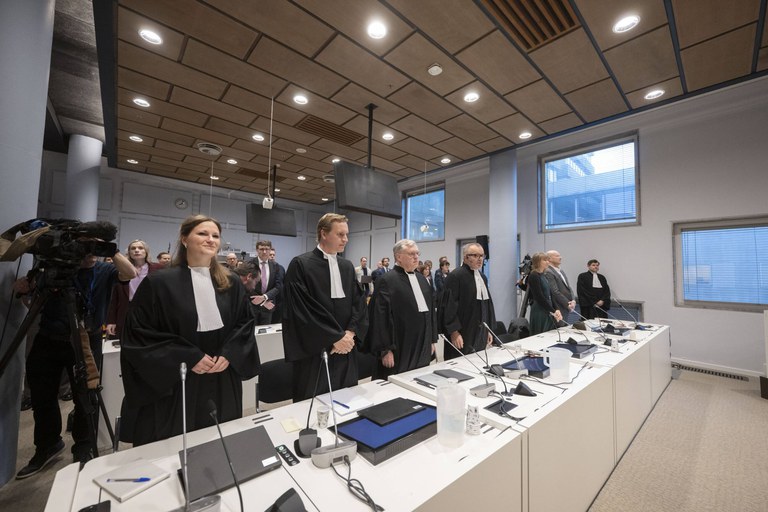We’ve decided to appeal to the Supreme Court in our climate case against Shell. The judge ruled that Shell should curb its emissions, but they did not determine at what rate. That’s why we’re taking the matter to the highest court in the Netherlands, the Dutch Supreme Court. This is why we have a strong case against Shell.
The ruling in our climate case against Shell was a big step forward for the climate. The Court of Appeal ruled that a company like Shell has a duty to reduce its CO2 emissions. It confirmed that protection from dangerous climate change is a fundamental human right. That means Shell has a special duty to stop dangerous climate change.
But a crucial part is missing: a specific reduction obligation for Shell. Such an obligation is important for curbing climate change. Only when the judge establishes a specific objective can we ensure that Shell takes real action.
The court of appeal decided that Shell should reduce its emissions, but it did not determine by which percentage. We believe there are many arguments as to why it should set a specific target. These are the three main reasons:
The court of appeal determined that Shell should curb its emissions, but said it could not determine a specific percentage by which Shell should do so. As a result, the court offers no real protection against dangerous climate change. Under the right to effective measures to protect human rights, the Appeal Court should have set a specific, measurable reduction percentage.
In order to determine by which percentage Shell should cut its emissions, the court cannot rely on scientific consensus alone. If all climate scientists had to agree on a percentage, the court may never set a reduction target. And yet the court chose only to look at the narrow standard of scientific consensus. The law has a duty also to consider international climate agreements and legal principles.
The Court of Appeal ruled that Milieudefensie doesn’t have an interest in a specific reduction order for Shell, because Shell might implement the court order in a way that could be ineffective. But this lawsuit is about Shell stopping its unlawful behaviour. How other companies are behaving is irrelevant to the case. Besides, the court should be focussing not on the ways in which Shell may fail to reach its reduction targets, but on the ways it can demonstrate accountability and take action.
—> Read more about our motivation to take our climate case to the Supreme Court

Time is running out for our planet. If we want to protect the place we all call home, we need to take action NOW. Will you help us keep up the fight against large polluters like Shell?
Our website uses cookies to ensure the use and functionality of this website. Read more about our cookie policy